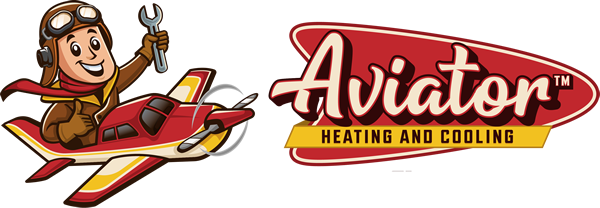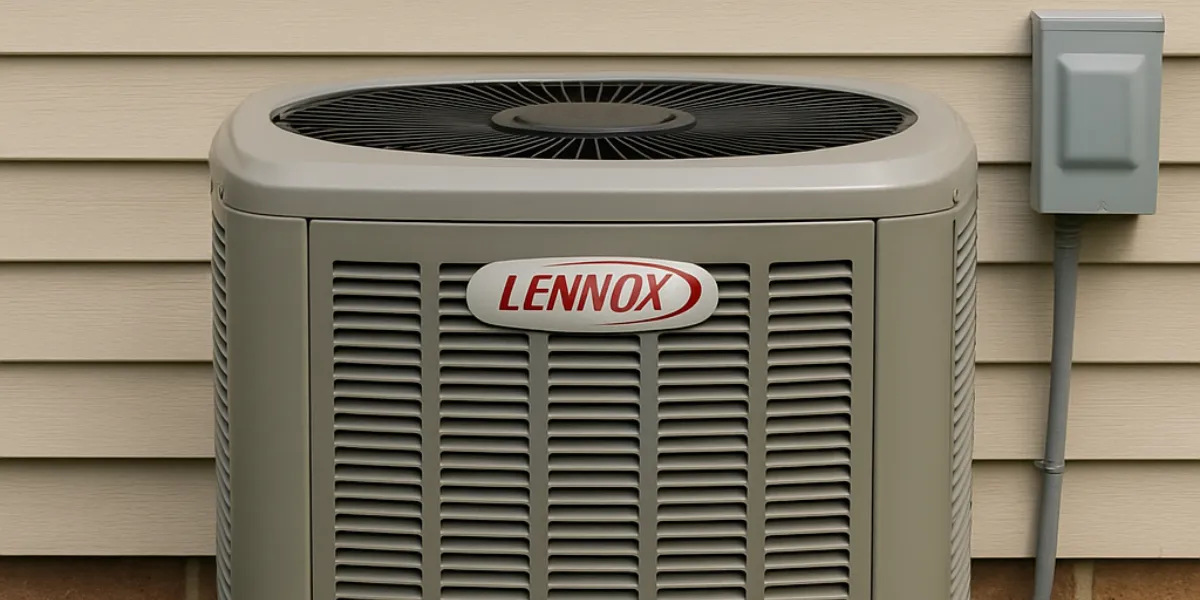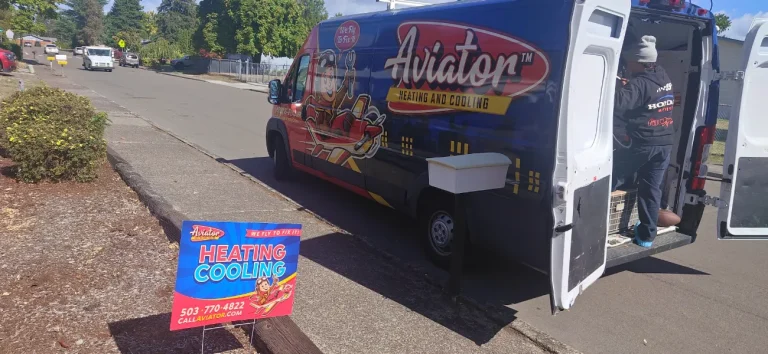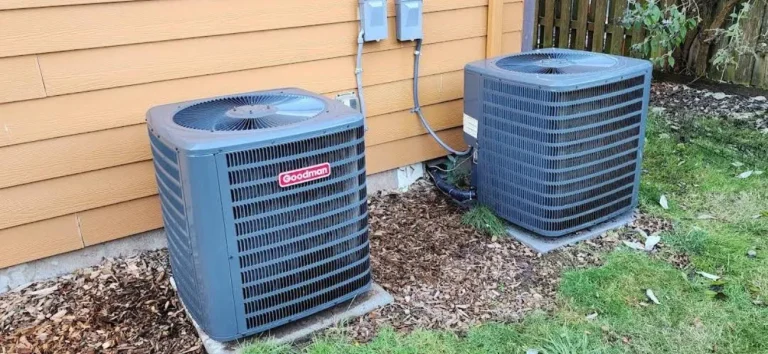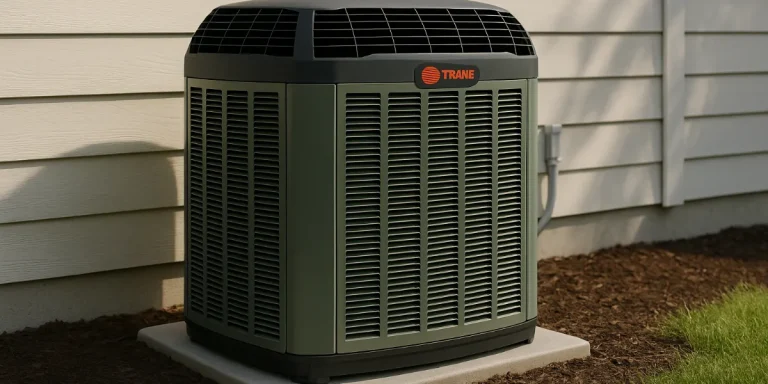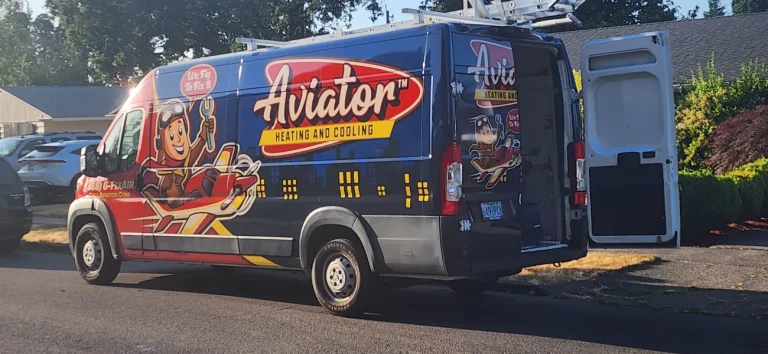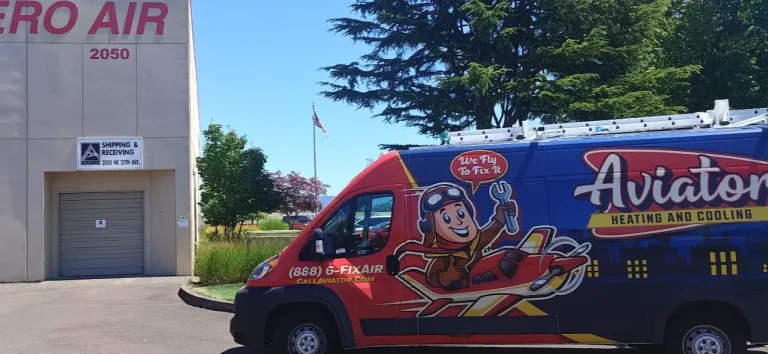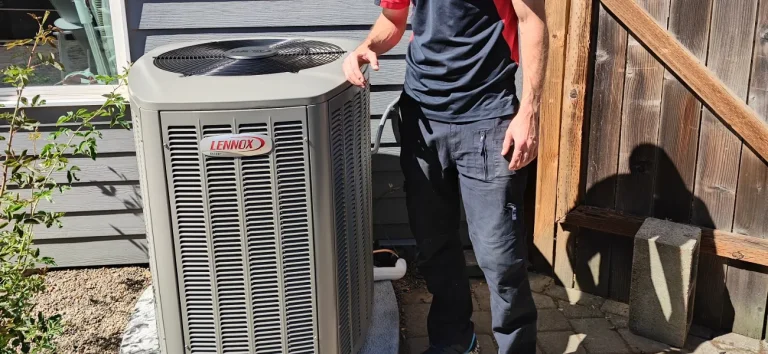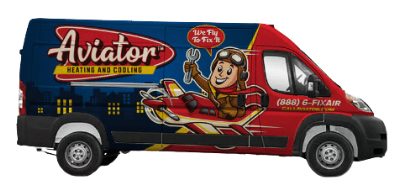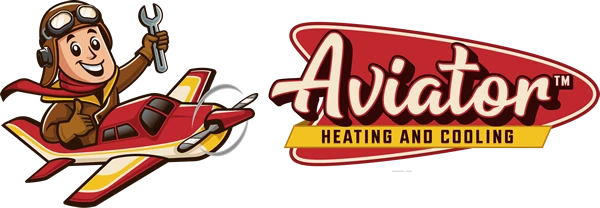Can a Dirty Filter Cause AC to Stop Working?
If your air conditioner suddenly stops working or isn’t cooling like it used to, the issue may be simpler than you think: a dirty air filter. At Aviator Heating & Cooling, we often receive service calls from homeowners in Hillsboro, Beaverton, Tigard, and nearby areas where the root cause is just a clogged filter.
Let’s explore how something as small as an air filter can lead to system shutdowns, higher energy bills, and serious strain on your HVAC equipment—and how you can prevent it.
What does an air filter do?
Your air conditioner's filter may seem like a small component, but it plays a critical role in the health and efficiency of your HVAC system. Its primary job is to trap airborne particles—including dust, pollen, pet dander, mold spores, lint, and even smoke particles—before they can enter your system or circulate through your home.
By capturing these particles, the air filter serves two key functions:
1. Protecting your HVAC system
Without a filter, dust and debris would accumulate on sensitive internal components like the evaporator coil, blower motor, and ductwork. Over time, this buildup can reduce efficiency, increase wear and tear, and eventually cause breakdowns or system failure.
A clean filter helps:
-
-
- Maintain steady airflow
- Prevent internal damage from dirt and debris
- Extend the life of your AC system
- Reduce the need for costly repairs
-
2. Improving your indoor air quality
Your air filter also acts as the first line of defense for your home's air quality. This is especially important for families in the Hillsboro and Portland Metro area, where seasonal allergies, pollen blooms, and wildfire smoke can significantly impact air quality. If anyone in your household suffers from allergies, asthma, or other respiratory conditions, keeping your filter clean is a must.
A clean filter helps:
-
-
- Reduce airborne allergens and irritants
- Control indoor dust levels
- Create a healthier living environment
- Prevent musty or stale smells caused by trapped pollutants
-
Why filters get dirty faster in Oregon
In Oregon, environmental factors like pollen-heavy spring seasons and wildfire smoke in late summer can quickly clog your filter—especially if you’re running your AC daily. Pet owners, large families, or homes near construction or farming areas may also notice filters need replacing more frequently.
If you haven’t checked your filter lately and your system is showing signs of strain (like reduced airflow or inconsistent temperatures), a clogged filter might be the culprit.
At Aviator Heating & Cooling, we check and replace air filters as part of every AC maintenance visit—ensuring your system runs clean, smooth, and efficient. Let us help you stay ahead of minor issues before they turn into major ones.
Yes, a dirty filter can cause your AC to stop working
It might seem like an exaggeration, but it's not—a dirty air filter really can shut down your entire air conditioning system. While a filter’s main job is to catch dust and debris, when it's clogged and neglected, it causes a chain reaction of problems that can lead to a full system failure.
Here’s how a dirty filter can take your AC from underperforming to completely offline:
1. Reduced airflow
A clogged filter restricts airflow, making it harder for your system to pull in the air it needs to cool your home effectively. This forces the system to run longer, and work harder, putting excessive strain on components like the blower motor and fan.
Warning signs of reduced airflow include:
-
-
- Weak or inconsistent airflow from vents
- Rooms that never reach the set temperature
- Cooling cycles that seem unusually long
- A noticeable increase in your energy bills
-
If you’ve noticed your AC running more often but cooling less, this is a major red flag—and it often starts with something as simple as a filter.
2. Frozen evaporator coils
The evaporator coil is the part of your system that absorbs heat from the air. But it needs proper airflow to work correctly. When a dirty filter restricts that airflow, the coil gets too cold and may freeze over.
Once this happens, your system can’t cool properly—and in many cases, it will shut down completely to protect itself from further damage.
What you might notice if your coils freeze:
-
-
- AC is running but blowing warm or no air
- Ice buildup on the indoor unit or refrigerant lines
- Puddles of water around your HVAC system from melting ice
- A musty smell from stagnant water buildup
-
In some homes across Hillsboro and Tigard, we see this issue spike during early summer when people start using their AC after a long break—often with a forgotten, dirty filter still in place.
3. Overheating and system shutdown
When your system can't "breathe," it overheats. Most modern AC systems include safety switches that detect high temperatures and shut the system down before serious damage occurs. While this protects your unit, it also means no cooling until the issue is fixed.
Common overheating-related symptoms include:
-
-
- AC shuts off suddenly during a cooling cycle
- Thermostat is set properly but system won’t turn on
- Circuit breaker trips and needs to be reset repeatedly
-
This type of shutdown often causes panic—homeowners think the system is beyond repair, when in reality, a new filter and professional maintenance may be all that’s needed.
4. Dirty filters reduce system lifespan
Even if your system doesn’t shut off completely, a dirty filter slowly wears down the system over time. Constant strain on the blower motor, poor airflow, and inefficient cooling can all lead to early failures of major components.
What that means for you:
-
-
- More frequent repairs
- Reduced energy efficiency
- Shortened lifespan of your HVAC system
- Higher long-term costs for part replacements or full AC replacement
-
At Aviator Heating & Cooling, we’ve seen AC systems last 15+ years when properly maintained—but we've also seen units fail in under 8 years due to chronic neglect, often starting with something as avoidable as a clogged air filter.
How often should you change your air filter?
A clean air filter is one of the simplest and most effective ways to keep your air conditioning system running efficiently—but how often should you actually replace it? The answer depends on several factors, including your lifestyle, home environment, and HVAC usage.
Here are some general guidelines we recommend to homeowners in Hillsboro, Beaverton, Forest Grove, and surrounding areas:
Standard replacement recommendations:
-
- Every 1–2 months during peak seasons
When you're running your AC daily in summer or your furnace constantly in winter, your filter collects more dust, debris, and moisture. Change it at least every 60 days—more often if you notice reduced airflow or increased allergy symptoms. - Every 30 days for allergy sufferers or pet owners
If you have indoor pets, your filter is working overtime to catch pet dander, fur, and tracked-in debris. The same goes for households with allergies, asthma, or respiratory issues, or those located near high-pollen areas or wildfire zones. Monthly changes help keep indoor air healthier. - Every 3 months in mild conditions
If you live alone, have no pets, and only run your HVAC system occasionally, you may get by with replacing the filter every 90 days. However, you should still check it monthly to make sure it hasn’t become clogged prematurely.
- Every 1–2 months during peak seasons
Other factors that affect filter replacement frequency:
-
- Wildfire smoke (common during late summer in Oregon)
- Construction or home renovation projects
- Smoking inside the home
- Multiple occupants in a smaller living space
- Type and thickness of the filter (e.g., 1" vs. 4" media filters)
Not all filters are created equal—higher-efficiency filters (like MERV 11 or 13) catch finer particles but may clog faster and require more frequent changes.
Not sure what filter your system uses?
If you’re unsure which filter to buy, what MERV rating is appropriate, or how to access the filter compartment, Aviator Heating & Cooling is here to help. During your seasonal AC maintenance or furnace tune-up, we’ll:
-
- Inspect and replace your air filter if needed
- Recommend the best filter type for your home
- Show you how to check and replace it between visits
- Provide expert tips for improving air quality year-round
We’ve helped hundreds of homeowners across the Portland Metro area reduce strain on their HVAC systems and improve comfort—just by staying on top of routine filter changes.
Real-life example: A Hillsboro homeowner's frozen system
We recently helped a homeowner in Hillsboro whose AC stopped cooling entirely in the middle of a July heatwave. When our technician arrived, the evaporator coil was frozen solid. The cause? A severely clogged air filter that hadn’t been changed in over six months. After replacing the filter, defrosting the coil, and checking refrigerant levels, the system was back to normal within an hour—without the need for major repairs.
How to prevent AC shutdowns caused by dirty filters
The easiest way to avoid airflow issues and unexpected breakdowns is to stay on top of regular AC maintenance. At Aviator Heating & Cooling, we offer:
-
- Professional AC tune-ups and inspections
- Air filter replacements as part of every maintenance visit
- Tips and reminders tailored to your system and household needs
- Help with filter upgrades to improve indoor air quality
We also recommend joining our Aviator Club, which includes annual maintenance visits, priority scheduling, and peace of mind that your system is running at peak performance year-round.
Proudly serving Hillsboro and the surrounding area
Aviator Heating & Cooling provides expert AC repair, maintenance, and system upgrades throughout the Portland Metro region, including:
Call now to restore comfort and protect your system
If your AC has stopped working—or you're worried a dirty filter might be the cause—don’t wait for the problem to get worse. Our team at Aviator Heating & Cooling can quickly inspect your system, clean it up, and get it back to keeping you cool.
Call us today or request an estimate online. We proudly serve Hillsboro and the Portland Metro area with honest advice, expert service, and reliable HVAC solutions tailored to your home.
